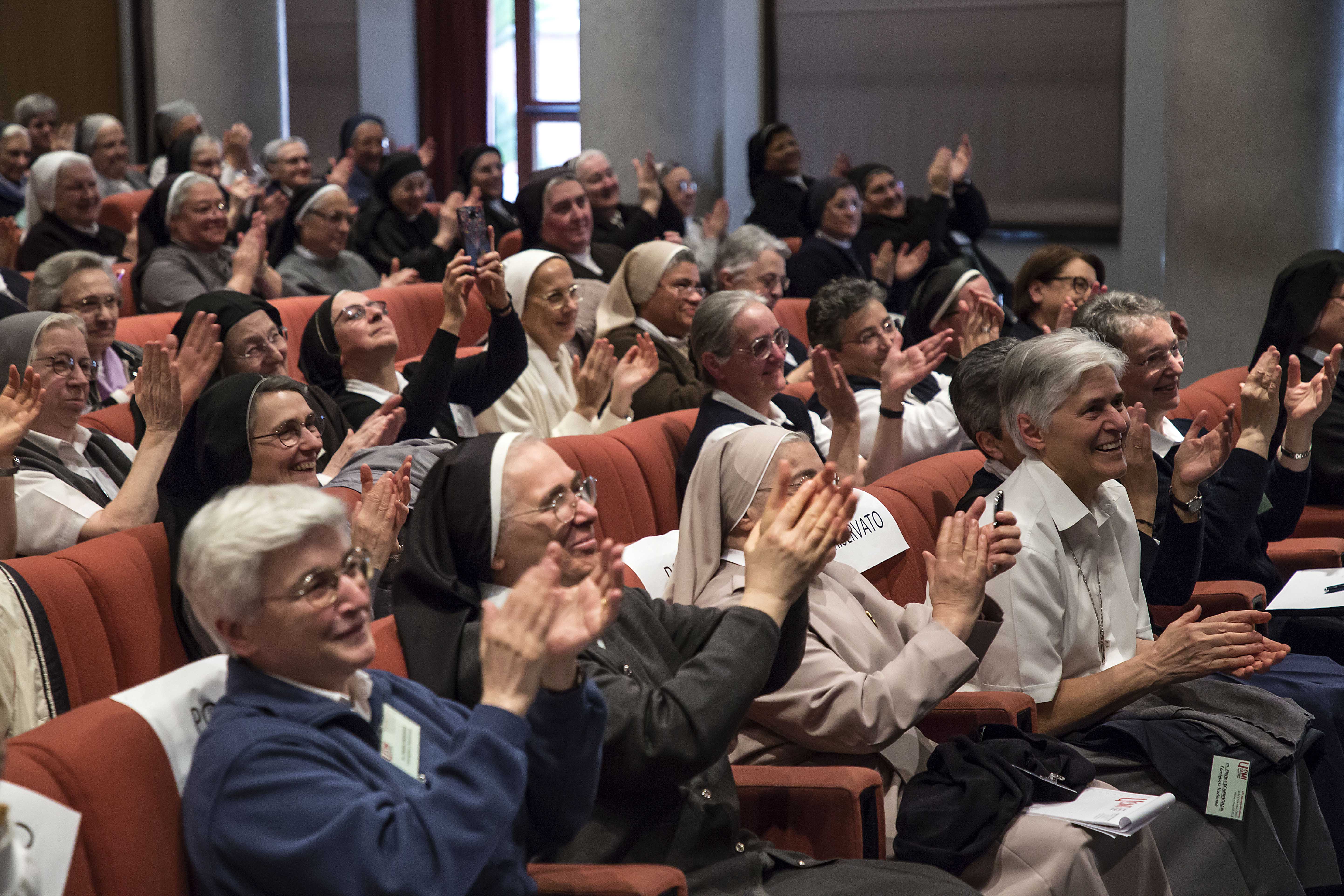
“To continue promoting ever greater cooperation between religious Congregations of men and women, deepening the contribution of consecrated life to the people of God.” A few days ago Father Arturo Sosa Abascal, Superior General of the Society of Jesus, was chosen to succeed Fr Mauro Jöhri, former Minister General of the Order of Friars Minor Capuchin, as President of the Union of Superiors General, representing over 220 male Institutes of consecrated life and 200 thousand members.
How did you react to the confidence that your superiors have placed in you?
Religious life is the expression of the action of the Holy Spirit inside the Church. Every congregation or religious family was created from the inspiration of the Spirit and became a gift to the people of God, at the service of the world and of its liberation. The more we are faithful to this inspiration of the Spirit, the more we cooperate with each other – men and women religious – the better will be our ministry in the mission of the Church, at the service of all human beings following the Example of Jesus, namely, putting the poor and the vulnerable first.
Which issues do you plan to focus on during your mandate?
The USG General Assembly took as its theme “Taking off Together…” as part of the process launched with the 2018 Synod on Young People, the Faith and Vocational Discernment. For USG this implies
viewing young people as a theological premise for a renewed interpretation of the signs of the times and deepen the theology of religious life.
Important signs of the times include lay society, seen as a new opportunity for evangelization; the impact on our lives of the anthropological transformation resulting from the new digital environment; migrations as a global, complex mass phenomena; the emergence of an intercultural global society… We are facing a program that challenges our imagination and reignites our yearning for service.
 Consecrated life is experiencing a difficult period, at least in Western societies.
Consecrated life is experiencing a difficult period, at least in Western societies.
It’s worthwhile recalling the challenges previously raised by the Second Vatican Council, and reiterated in the recent Synod, that is, to recover the charismatic sources of religious life in all their current variety; the personal conversion of consecrated men and women leading to a life devoted to the witness of faith in God and to community life that becomes a sign of human reconciliation, of the creation and God; ministering to the poor and leading a life of poverty as signs of faith in God and of full dedication to the mission; the discernment of the mission of each religious institute in the present times with a gaze to the future; updating organizational structures and apostolic planning of available resources.
Do you plan to intensify also the relations with women religious?
In practical terms we intend to significantly increase the cooperation with women religious, not only because they represent over two thirds of consecrated life but also in the light of their many charisms and their immense contribution to Church mission. And most of all, for their important contribution in the reconfiguration of women’s role in the life of the Church. Furthermore, we wish to propose
Education and pedagogy for the new human being of the digital world. The new historical era of humanity challenges the educational and pedagogical tradition by proposing the same tradition in a form that humanizes also our modern times while bringing young generations closer to the faith in Jesus Christ.
In a message to the entire Society of Jesus on the theme of abuses, you have asked to “go beyond policies of zero-tolerance.” Which preventive and repressive measures have you adopted?
In fact by recognizing abuses we hope to produce personal and institutional conversion, as Society of Jesus and as a Church, and that this may help us strengthen our commitment for the establishment of justice and for the transformation of societies where so many abuses take place.
The acknowledgement of abuses and of their cover up ushers in personal and institutional conversion in all areas of the life of the Church and of its members.
The conversion process enables the Church to foster the transformation of society and contribute to creating the conditions of a healthy life for children and vulnerable persons. We are facing a huge challenge and a complex cultural transformation.
In this respect, as General Superiors which contribution do you intend to bring to next February’s meeting in the Vatican, announced by the Pope, on the protection of children inside the Church?
We will bring our sorrowful experience of past cases, what we have learned in the process of attentive listening to abuse survivors, in the efforts made to do justice and to heal, whenever possible, the deep pain and damage that has been inflicted. As consecrated persons we have experienced the mercy of God who not only gave us full forgiveness and freedom from sin, but also called upon us to contribute to the mission of reconciling all things in Christ. The mission of reconciliation implies transcending human justice and our efforts of reparation to accept mercy as the ideal way to face the inflicted wounds and embrace forgiveness, given and received. The Lord’s Prayer, donated to us by our Lord Jesus thus assumes, in the light of this situation, renewed topical relevance and is converted into a source of inspiration for all that we are called to fulfil as a Church.











